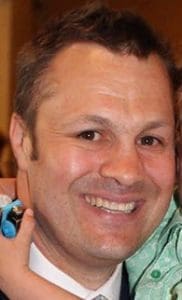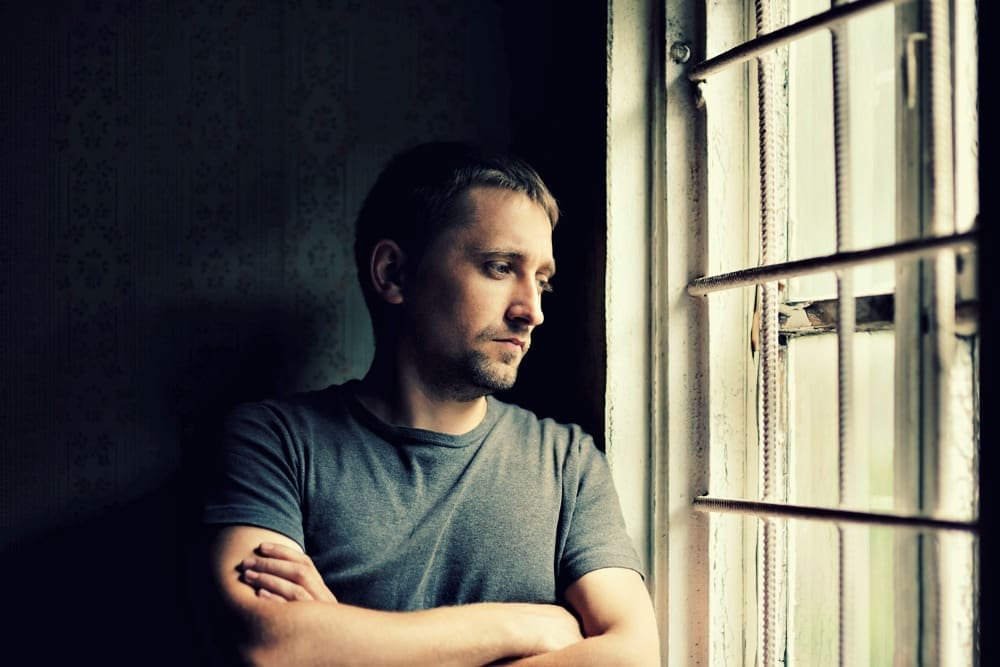By Christopher Pepper
In April 2014 I was diagnosed with an anxiety disorder.
Anxiety is one of the most common health conditions in Australia. For men, anxiety is even more common than depression – 1 in 5 men will experience anxiety at some point (source: Beyondblue)
For those who know me this might shock you as I seem to be a person who always likes a laugh, a good time and making a fool of myself. That in itself is entirely true and one of the traits that makes me the person I am today.
But there was a side of me that not many people knew existed except my close family and friends. The mood swings, the feeling of nothing is going well for me even though I have a amazing wife and two kids I adore. I would distance myself from my friends and instead of going out or away with the boys I would prefer to be at home on the couch. It was extremely hard not having as much social interaction after I finished playing Aussie Rules at the end of the 2012 season.
Ask me why at the time and I couldn’t tell you my reasoning behind it. All I know is that I felt pretty average and flat about things.
Around the same time, AFL footballer Mitch Clark retired from the game due to a mental illness (in his case depression) after two years of constant foot injuries and the weight of not being able to fulfil the massive contract with the Demons on his shoulders. The people in the media and society either praised Clarke for his courage to give the game up due to his illness or told him to suck it up as he was on a big wage and playing AFL couldn’t be that hard on him. It was the first time a professional footballer in the AFL had to give up the game due to an illness that couldn’t be seen like glandular fever or a physical injury such as a broken leg. People were divided and I was one of them.
On the weekend after the announcement, former Victorian Premier and now Chairman of Beyondblue, Jeff Kennett, spoke to SEN1116 and praised Clarke for raising the awareness of mental illness within the footballing community with his announcement. As Kennett was rolling through a number of the signs and symptoms of mental illness I was starting to relate to a number of the stages he was describing including;
- withdrawing from close family and friends
- feeling overwhelmed
- irritable
- frustrated
- lacking in confidence
- unhappy
- indecisive
- disappointed
- feeling tired all the time
It was this moment I headed over to the Beyondblue website to see the full list and how closely it matched to my feelings and emotions. For a long time I knew something wasn’t right with how I reacted to situations: up one minute and loving life, the next I would rather be on the couch with the blinds closed watching TV by myself. For too long it was affecting my relationships with my wife, family and friends and I had to see if if Beyondblue could help by just listening to me and hopefully give me some guidance.
I made the choice right then to check my ego at the door and Beyondblue a call.
Not going into the specifics but picking up the phone and making the call felt like a huge weight was being lifted off my shoulders. It was the first (yet a small one) step in getting the part of my life that was holding me back and addressing the possible causes head-on. With Beyondblue’s help they reassured me that what I was feeling and going through was and illness exactly like having a sore throat or common cold; you go to your GP and tell them your symptoms and they will prescribe you with some medication make you feel better.
My GP was amazing. He explained how mental illnesses can occur in people when their brain doesn’t produce sufficient levels of serotonin, a chemical which regulates moods in the human body. He then prescribed me a trial of some medication I needed to take daily to see if there was a change in my emotion and in turn my interactions with people. The medication has made such a difference I still take one a day to keep myself in check. Will I ever need to get off them? Maybe, but if everything at home and work is so much better being on the medication that being off it why would I?
It has been almost a year since I was first diagnosed and it has been a continual healing process. Over time I have let relationships slip with mates I played footy with for over 20 years and slowly I am trying to rekindle them (guys if you are reading this and you know who you are then I hope this provides some clarity why I have been distant). There will be some close friends and family who are finding out about this for the first time and I hope you understand why I have kept this quiet. What I do know is when people find out they have been uber-supportive and want to help out any way they can.
Having avenues of support is vital when dealing with anxiety and I am very luck to have a network of family and friends who have been there whenever I was having one of my moments. Finally, thanks to my amazing wife Narelle for her support throughout our 19 years together, especially during the last 12 months. You are my best friend and soul-mate.
I am not looking for sympathy. I just want to raise the awareness that there are people you know that may be hiding their mental illness from you and eventually they will let you know about it. If they are like me they will probably just want someone to talk to like I did.

About the Author: Christopher Pepper
You know what? Living the life of two wonderful kids and an incredible wife in Melbourne, Australia has its ups and downs and most of the time it isn’t because of them. My daughter Maya and son Noah light up my life but being a father has its challenges. Whether it is putting them to bed, feeding them or even taking them to the shops can be either a walk in the park or World War 3. You can be like Leonardo and be ‘on top of the world’ one minute and then feelings like you are in The Abyss the next.
I have decided to share my experiences with the world for a number of reasons. First and foremost, it gives me a chance to brag or vent depending on the situation to you all about being a dad. Secondly, it might help any potential, new or existing dads know that there is someone who is going through what they are and that they are not alone. Thirdly, I reckon I have a few things on my mind that a few of you out there is thinking but have never had the outlet to say so. Now you do.
Think of it as the Top Gear of Dads! If I have something positive to say about an experience, product or process I will praise it to high heaven. On the other hand, if it has left a negative impact on me you will know as well. I am going to be as genuine and honest as I can be because if I’m not it won’t help you and then you won’t come back to read more.
I’m Christopher Pepper and you can find me at ‘The Pep Talk’! I encourage you to add your two cents by commenting on any of the posts, sharing the site with others, and most importantly getting involved!
You can contact Christopher via his website and follow him on Facebook, Twitter, Instagram and Pinterest.


great article what meds are you on i have tried too many they sides effects are awful still trying to find one or combo
I think this is a great article and I thank you for sharing your story! xx
Well done Christopher, I took the hard road and thankfully came out all right after a few years, but I don’t recommend it. Talk to your doctor, you wouldn’t try to fix a broken leg yourself…